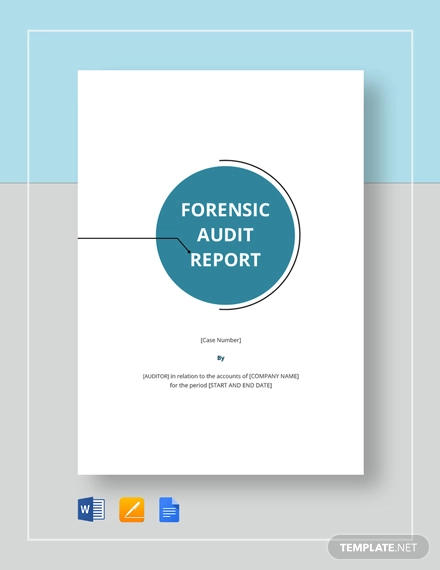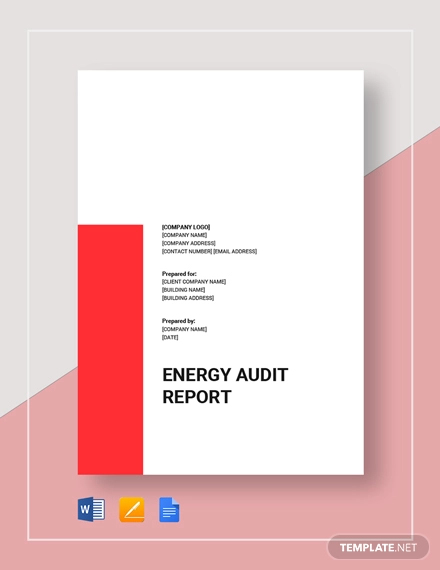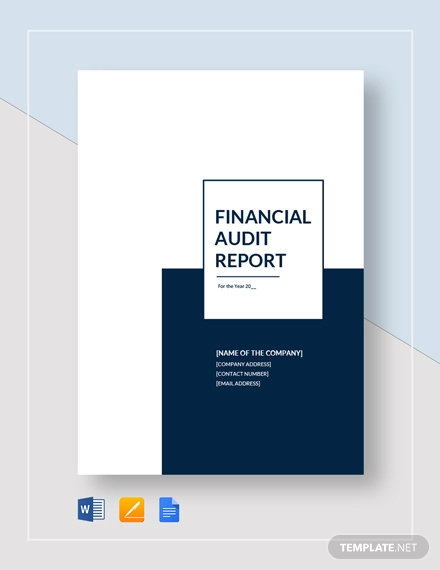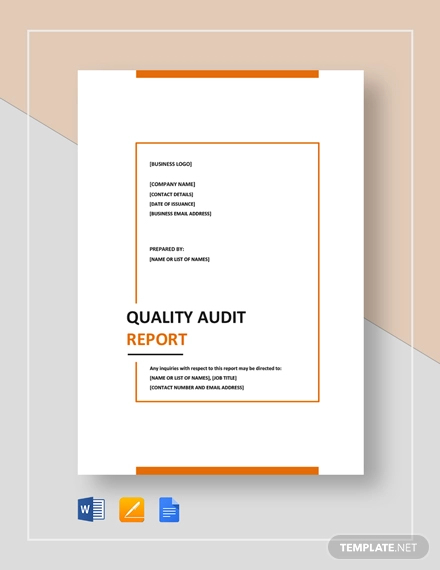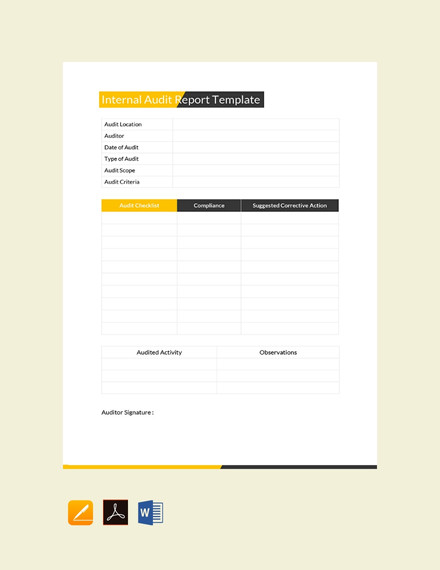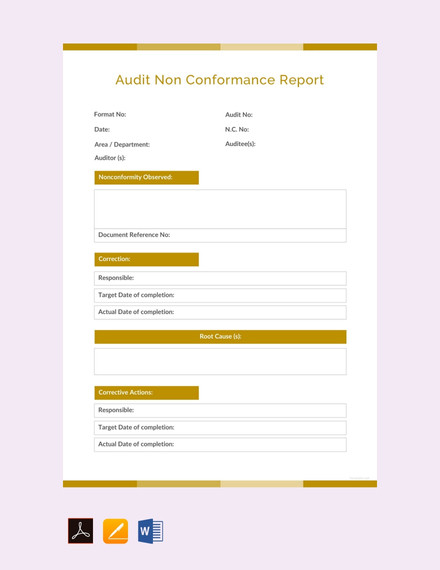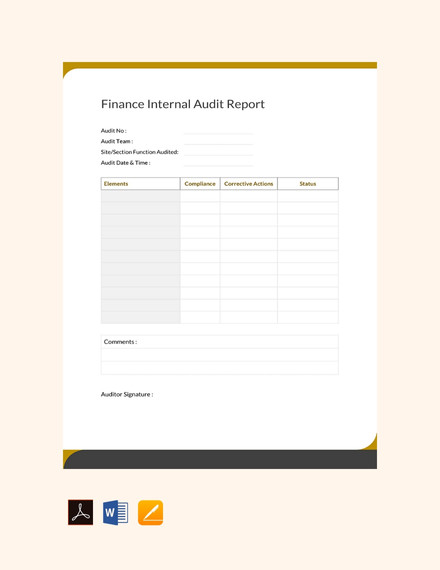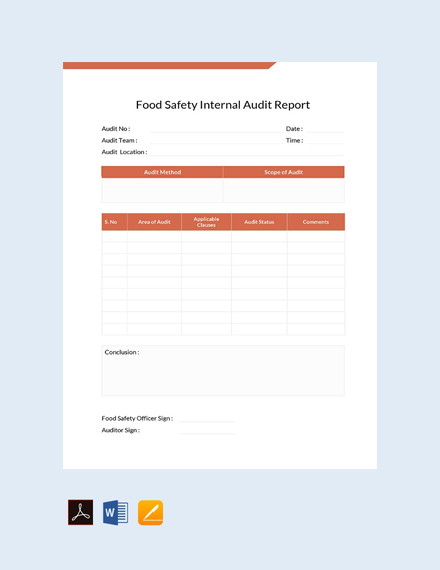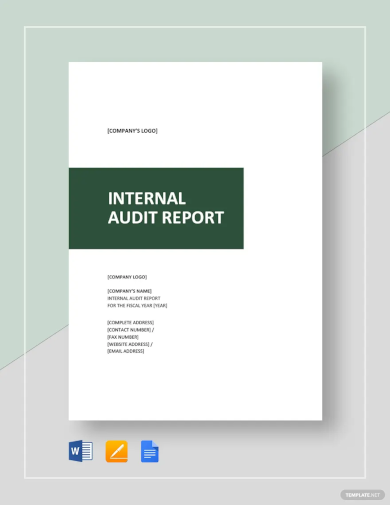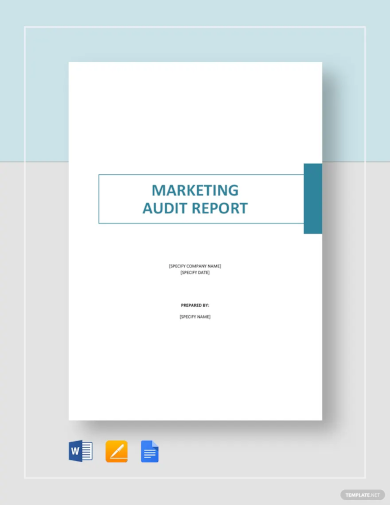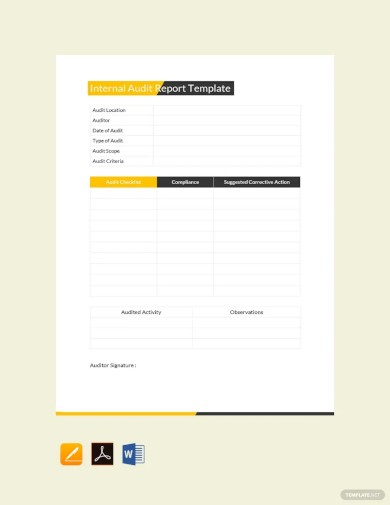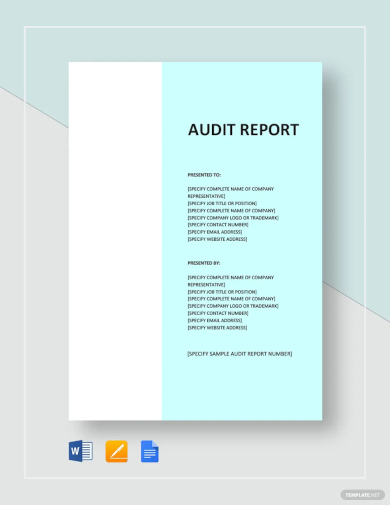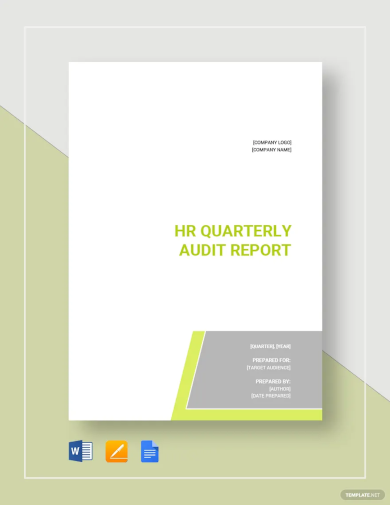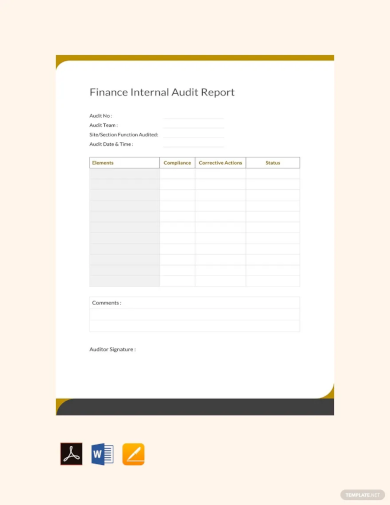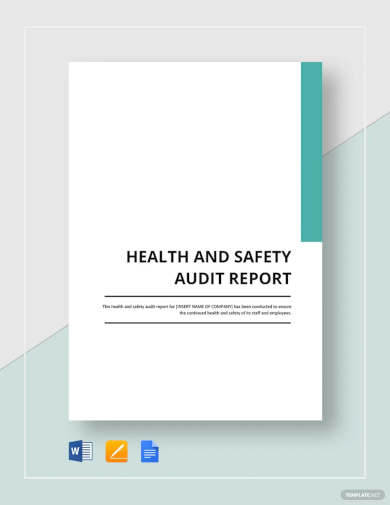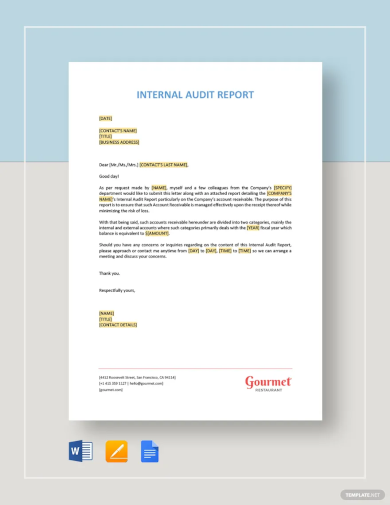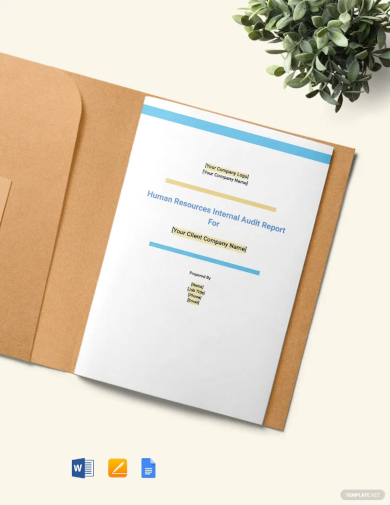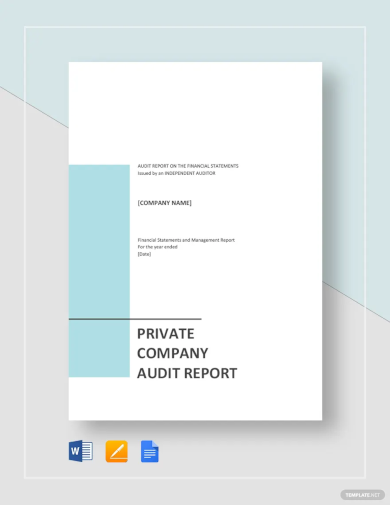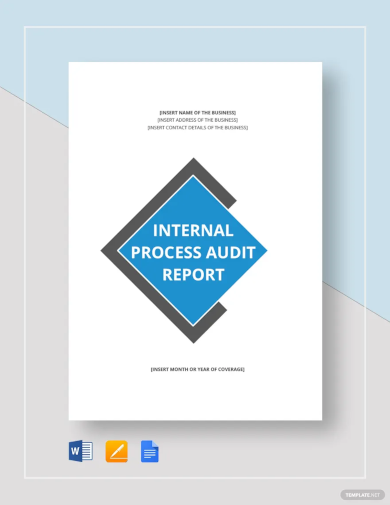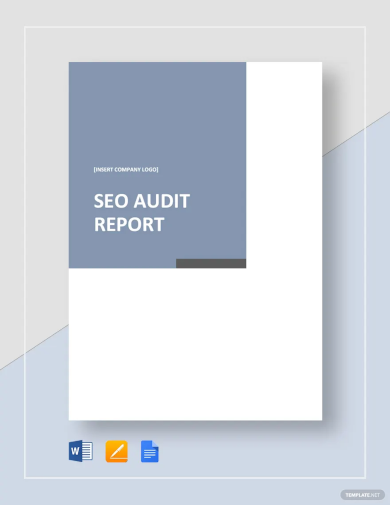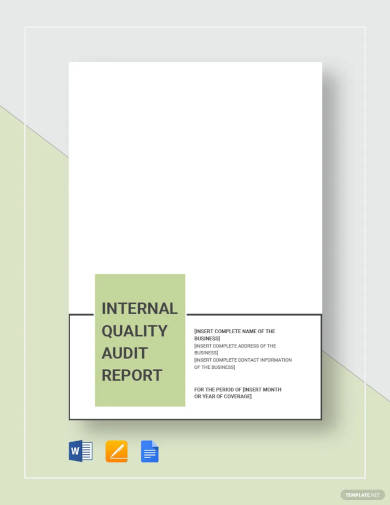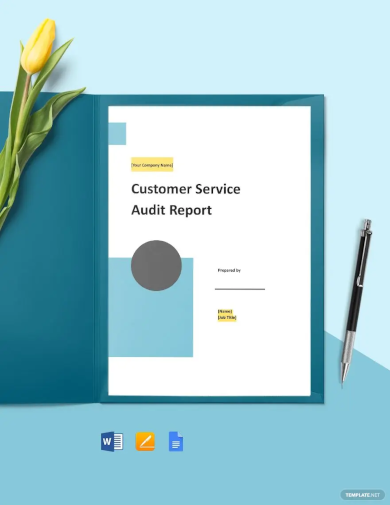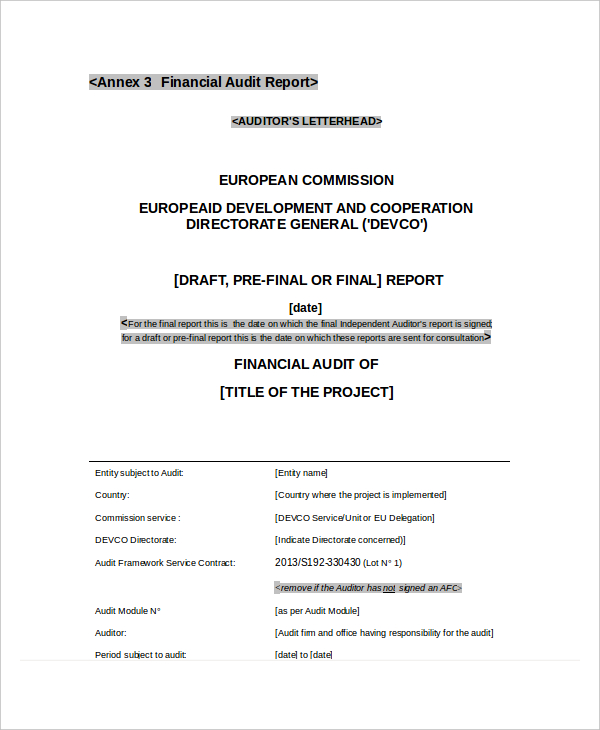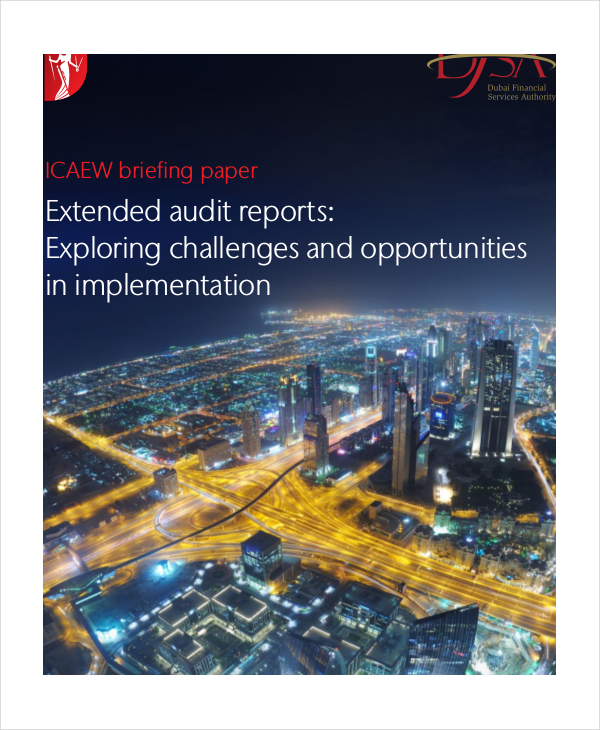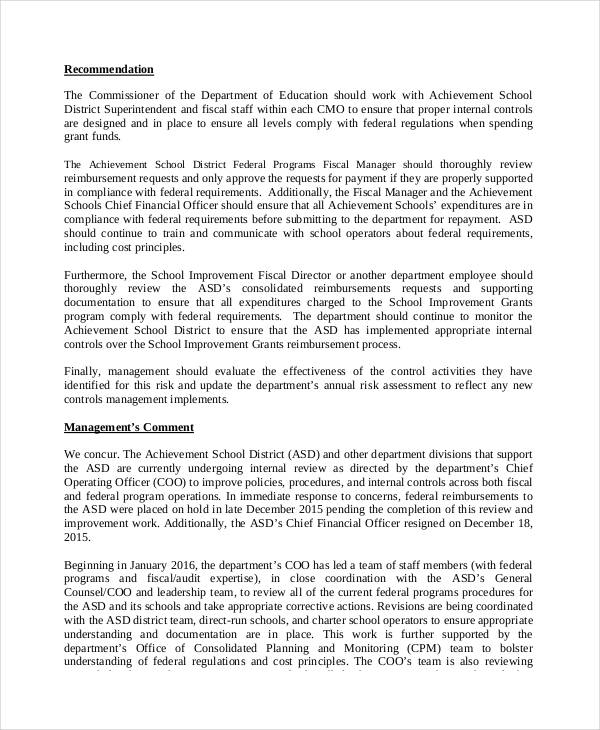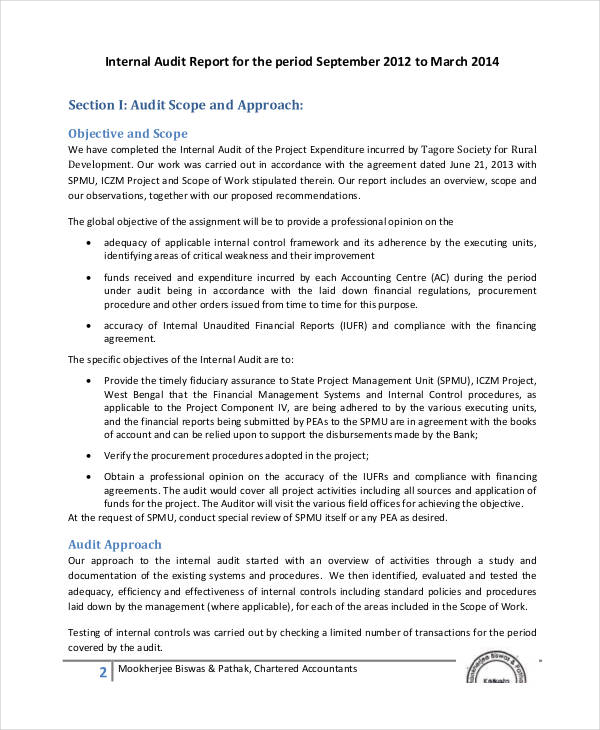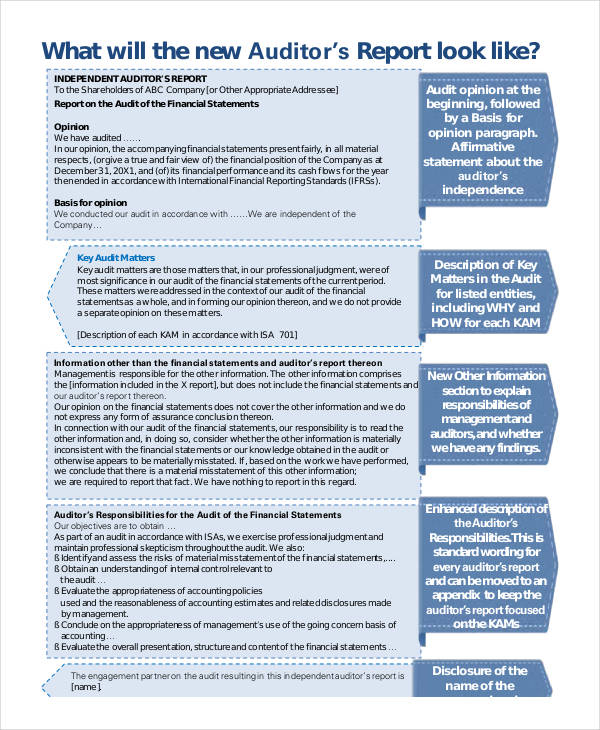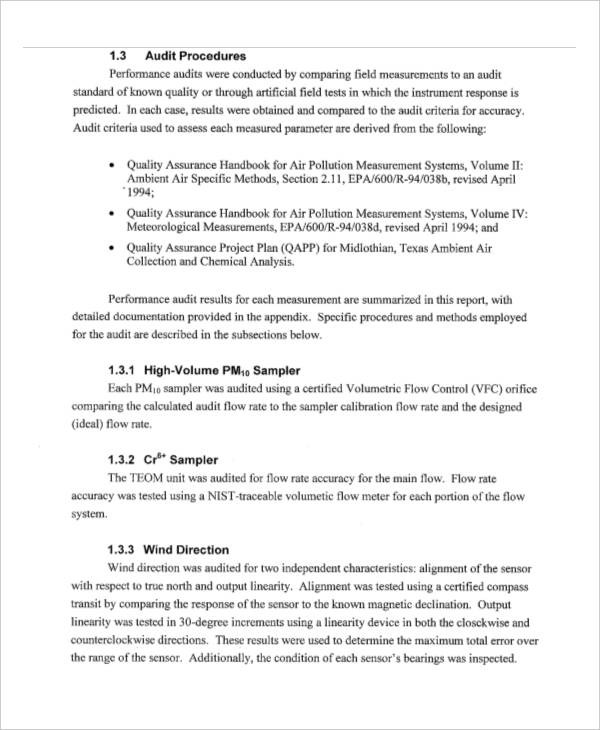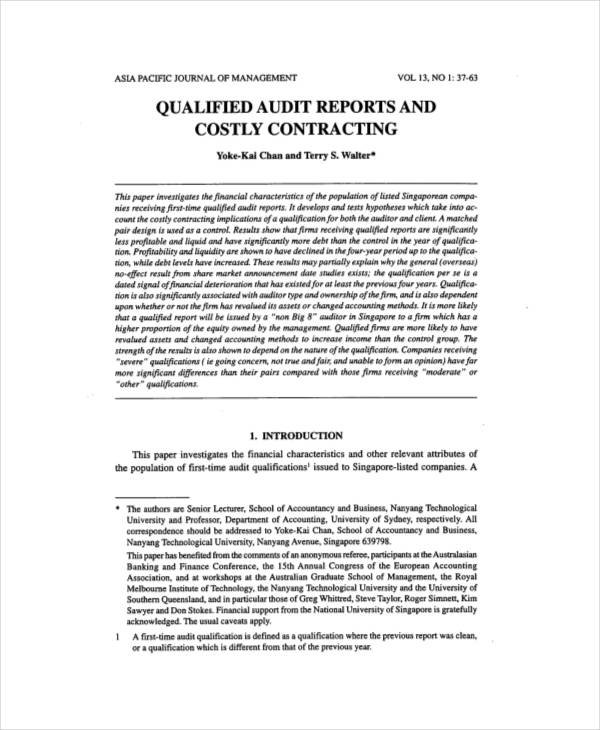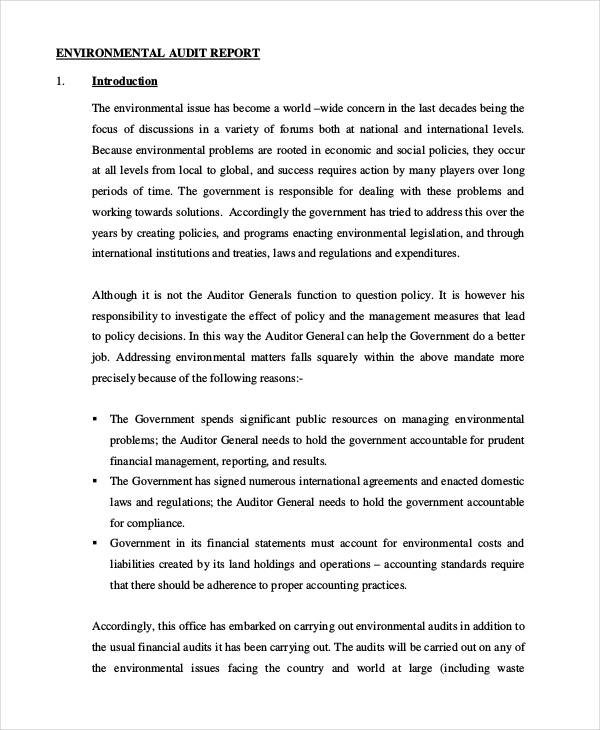30+ Audit Report Examples to Download
Regular monitoring regarding the finances of an organization is a must. These assets are the fruit of the institution’s hard work; hence, it should not be wasted. In the general scheme, watching over this aspect is a task given to the auditors. They are obliged to watch on the money of the entity and study the financial report. In this article, we are going to discuss the document that would substantially be useful for auditors to communicate with the company. Read through to know more about audit reports.
There are several versions of audit reports from various fields. To get you acquainted with some of them, we gathered many templates and samples for you. Expand your overview of audit reports with this collection of epitomes.
Forensic Audit Report Template
Energy Audit Report Template
Financial Audit Report Template
When you are in field of business, it is expected that you should familiarise yourself with things like financial reports, marketing reports, as well performance reports. These three are but a speck in the vast world of trade and industry. You need to equip yourself with enough skills or else you will be left behind.
Quality Audit Report Template
Free Internal Audit Report Template
Free Audit Non conformance Report Template
Free Finance Internal Audit Report Template
Food Safety Internal Audit Report Template
Simple Internal Audit Report Template
Marketing Audit Report Template
Internal Audit Report Template
Sample Audit Report Template
HR Audit Report Template
Finance Internal Audit Report Template
Health and Safety Audit Report Template
Sample Internal Audit Report Template
HR Internal Audit Report Template
Private Company Audit Report Sample Template
Internal Process Audit Report Template
SEO Audit Report Template
Internal Quality Audit Report Template
Customer Service Audit Report Template
Audit Report Examples
Financial Audit Report Example
Extended Audit Report Example
Single Audit Report Example
Internal Audit Report Example
New Audit Report Example
What Is an Audit Report?
An audit report is an official document that contains the auditor’s opinion concerning the examination of an entity’s financial statement. Naturally, it is like an inspection report of an organization that focuses mainly on finances. Moreover, this paper has a standard format to be followed, which corresponds to the generally accepted auditing standards (GAAS).
Format Guidelines for an Audit Report
Considering that an audit report has a universal format that needs to be followed, it is relatively significant to be informed with the different sections an audit report should have. Here are the different segments you need to include in your document.
- Title and introduction. It is sometimes not necessary to have a title, but for the sake of formality, you can make one. Your introduction should contain a brief background of the audit. This portion should also include the obligations of the auditors and directors.
- Content. This part is also called the body of the report. It contains the methods as well as factors for the audit. The scope of the text should be determined in this segment, too.
- Summary. The last part of the report which tackles any findings and the recommendations. The auditor may also state his/her opinion in this segment. Based on the GAAS, there are four types of acceptable opinions in this document: clean or unqualified, qualified, adverse, and disclaimer. Commonly, clean opinions are applied. If the auditor has any suspicion concerning any malice or improper execution of procedures about the auditing even without enough evidence, he/she could include a disclaimer opinion.
What Is the Purpose of an Audit Report?
An audit report is usually conducted by an independent body outside of the organization or at least a non-partisan group or individual to avoid providing bias findings and results. The purpose of an audit report is to provide information that could offer a beneficial result or product.
Most of the time, reports are the common source of making right and sound decisions for an organization. An audit report is intended to give information without any taint of partiality and fairness. Thus, the results are sometimes used to come up with strategies and methods on how to develop an organization.
Quality Assurance Audit Report Example
Safety Audit Report Example
Qualified Audit Report Example
Environmental Audit Report Example
Types of an Audit Report
An audit report can be applied to a lot of subjects not just to business. Here are few of them.
- Financial audit report. This refers to an audit conducted to assess an organization’s financial status or performance in a given period.
- Environmental audit report. It pertains to an evaluation which concerns the nature and the surroundings. It could sometimes include alarming threats to the ecosystem like global warming or the rapid decrease in the number of trees in the forests.
- Safety audit report. It is an audit that focuses on the safety procedures and protocols of a building or an organization.
Importance of an Audit Report
As we have previously discussed, audit reports are usually conducted by a non-partisan group or an individual to avoid producing biased conclusions as well as to remove any favoritism.
An audit report is important to attain impartial results and unprejudiced judgments. For a company to continue its operations without conducting any assessments or evaluations, it is sometimes expected that unforeseen negative impacts are to happen. Or, in the worst-case scenario, it could lead to bankruptcy.
Without conducting an audit report, a company could lose millions of profit if finances are not liquidated. An audit report is important to check whether there are right allotments for every contributing factor of the business report.
Tips for Being More Persuasive on Writing an Impactful Audit Report
An audit report is written and passed not barely for the sake of describing the current condition of an entity’s finance. Most importantly, it is also used to make the right corresponding action regarding the submitted document. With this said, it is already comprehensible that the prospective impact of an audit report should be assessed as well. To help you write a highly persuasive audit report, here are some smart tips you can apply.
1. Be professional.
The first thing you need to consider throughout your document should be professionalism. It is quite clear that people believe easily on individuals that appear veterans in such fields. This scenario that commonly occurs, especially in the technical areas is what we call “professional bias.” This is the phenomenon when an individual seeks for someone who looks more knowledgeable in a specific discipline. Relatedly, appearing like an expert in this field is a prominent additional point for your persuasiveness. Whether your reader is an expert or not in auditing, compromising will never be the key. Watch for your word selection and tone in the entire composition.
2. Keep it simple, but not mundane.
Remember that you are not writing a poem. Thus, there is no need for you to be extra fancy on your audit report. In composing a persuasive document, one of the first things you need to consider is empathy. While writing your report, you probably have an idea already who is going to read your composition. No matter who it is, put your self in their shoes while reading your audit report. Would you prefer to submit with a paper with nothing but ambiguity and fanciness or a simple one but is easy-to-understand? Consider also that possible readers of your writing are the busy ones. Hence, they do not have enough time to scan repetitively to understand your work thoroughly. It will be best if you will keep it direct and simple.
3. Keep it brief, but complete.
Another thing to recall is that you are not writing a novel. Though in some cases, you need to go in-depth in your audit report, the shorter will still be the better. Again, focus your composition on your audience’s perception. Knowing that they are usually busy, it will never be advisable to provide them with a composition of numerous pages. If you can do it with just one page, it would be fantastic.
Your audit report needs to short; nevertheless, it should not be just short—it needs to be complete as well. To accomplish both of these goals, ask yourself whether you successfully assessed the needs of your reader, or are all of your stated pieces of information are relevant. Essentially, if you have inserted extraneous matters in your document, erase it. These may only distract or confuse your audience.
4. Learn how to emphasize.
The primary purpose of composing an audit report is to obtain the necessary response concerning the finances of an entity. Given this statement, it is notable for making your audience understand your point first. Making your report short and simple may be fair; however, we are aiming for something drastically persuasive. For you to achieve such a result, highlighting the essential details of your report is a brilliant idea.
For the third time, let’s suppose that your reader is a busy person. In most cases, they scan for clues first on where the report is all about before reading it entirely. To do that, emphasize significant points first. You may also include graphs, charts, colors, etc. to apply a visual emphasis on them.
5. Proofread.
Despite your expertise, a draft should always be assessed. Often or should we say every time, you unconsciously commit mistakes regarding your grammar, spellings, capitalizations, etc. These matters may be basic; however, they are huge factors that would affect the presentation of your report. Proofreading your work, though, enables you to review these potential errors and correct them before submission. Peer review would be helpful as well.
General FAQs
1. What is an Audit Report?
An audit report is a document that contains a written opinion of an auditor with respect to a company’s financial statements. It is documented by an independent accounting professional, and it presents his/her expert assessment of the company’s financial position.
2. What is the Structure of an Audit Report?
The structure of an audit report is as follows:
- Title of the report
- Name of addressee
- Management’s responsibility for financial statements
- Auditor’s responsibility
- Opinion
- Basis of the opinion
- Signature of the auditor.
3. What are the Types of Audit Reports?
There are four types of audit reports. They are as follows:
- Unqualified Audit Report
- Qualified Audit Report
- Adverse Audit Report
- Disclaimer Audit Report.
4. What are the Advantages of Using Audit Reports?
Following are the advantages of using audit reports:
- It provides assurance on financial statements
- It helps display the management’s integrity towards their shareholders
- It helps stakeholders understand a company’s financial and operational situation.
5. What is the Main Objective of an Audit Report?
The main objective of an audit report is to document a company’s financial statements based on an auditor’s opinion. It is prepared to assure that a company’s financial statements are free from error. It also summarizes the findings so that the management can see the impact of these findings.



